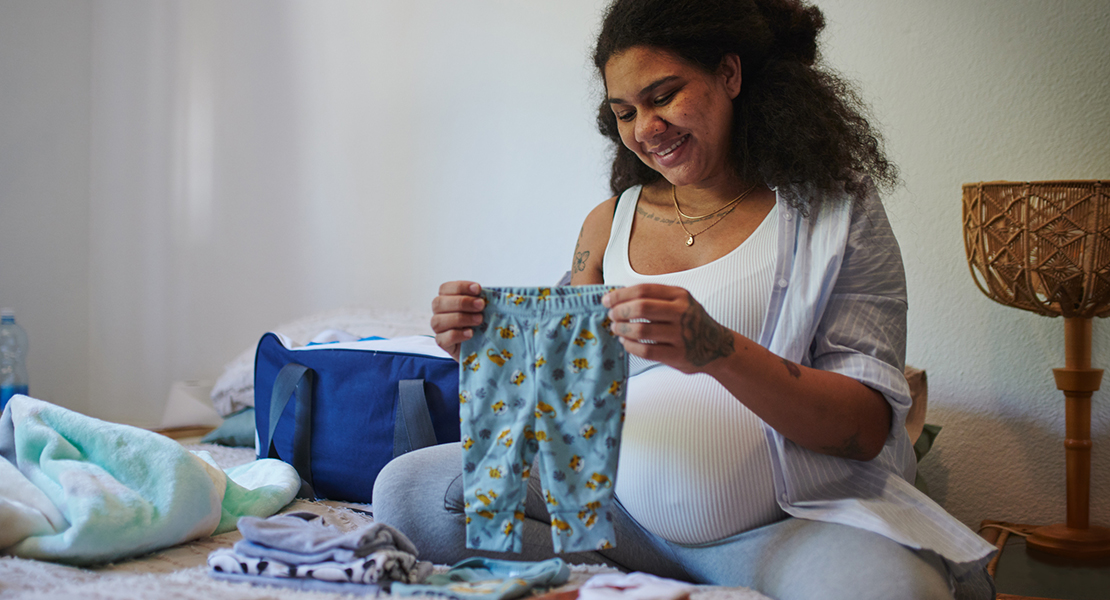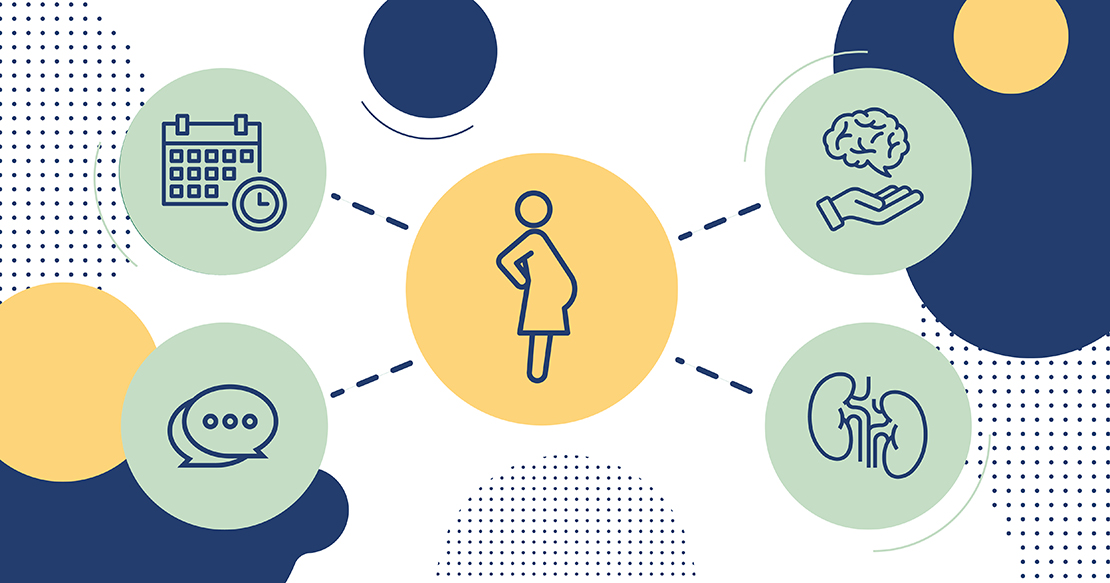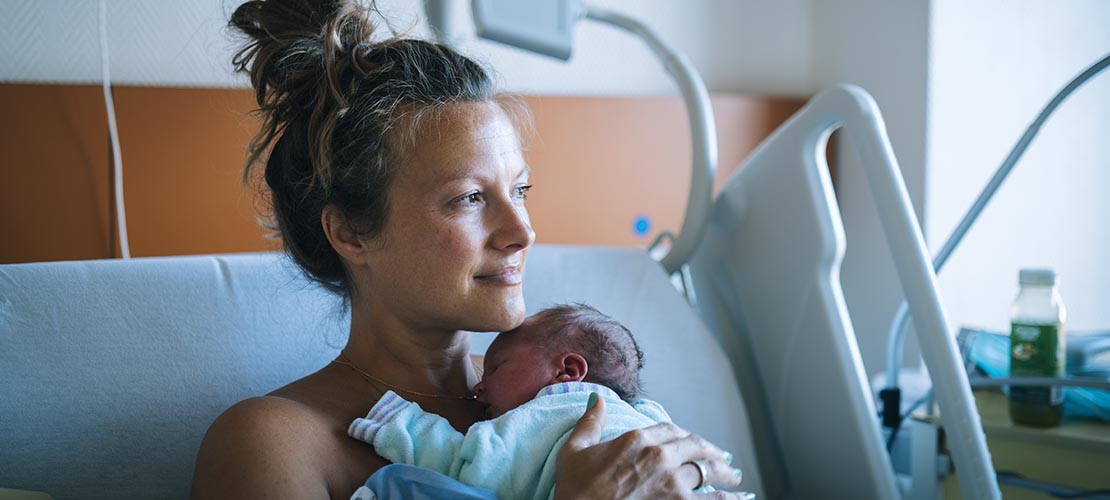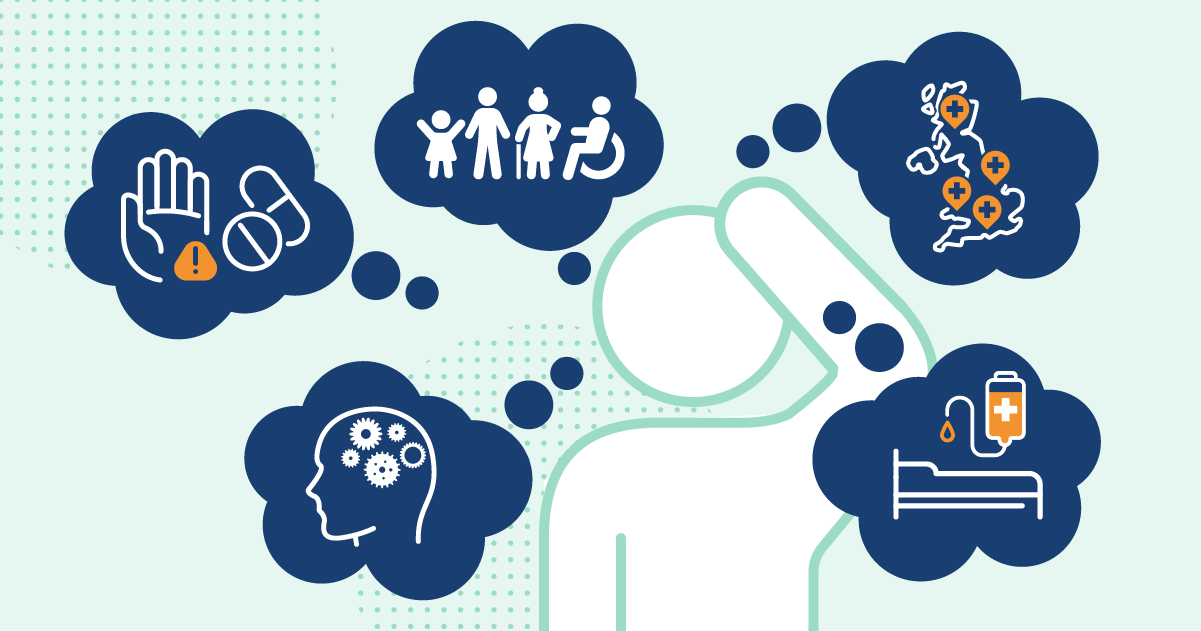From the very early stages of conception right through to the care received after a baby is born, women can access a range of maternal services and support throughout their pregnancy journey. Care is personalised to women depending on their personal circumstances and stage of pregnancy; and can change throughout this time.
Maternal health and care research is thriving across the full spectrum of pregnancy and maternal care. Nigel Simpson, National Specialty Lead for Reproductive Health at the National Institute for Health and Care Research (NIHR) Clinical Research Network says:
“This small selection of examples provides an insight into the range of studies that are taking place during and after pregnancy, and the ways in which their findings are informing more effective future care. There are over 200 pregnancy studies currently in setup, progress, or reporting at any one time."
"In a typical year someone will be signing up to a pregnancy study every ten minutes of every hour of every day – showing how willing mums are to participate in research which will improve care for mothers and babies in future pregnancies."
– Nigel Simpson, National Specialty Lead for Reproductive Health at NIHR CRN
"We are incredibly grateful for their support to further improve good quality maternity care,” he continued.
Planned earlier delivery following a diagnosis of late onset pre-eclampsia
Pre-eclampsia is a serious condition and can be life-threatening to mother and baby. It is characterised by high blood pressure and protein in the urine, and often presents after the 20th week of pregnancy. Women with pre-eclampsia, if left untreated, can end up with damage to their kidneys or other organs.
Researchers as part of the ‘planned delivery or expectant management for late preterm pre-eclampsia’ or ‘PHOENIX’ study looked at late onset pre-eclampsia where the condition is diagnosed after 34 weeks but before the 37th week of pregnancy, to see if delivering within 48 hours of diagnosis would be safe for mother and baby.
Funded by the NIHR Health Technology Assessment Programme, 900 people were enrolled into the study from across England and Wales. Upon diagnosis of late pre-eclampsia, half of the participants were scheduled to deliver their babies within 48 hours and the other half (the control group) were given the treatment as per the usual approach - monitoring to get the pregnancy as close to full term as is safe, and then delivering.
The results showed:
- Lower rates of very high blood pressure in those who had a planned delivery compared to the control group.
- Planned delivery babies were born an average of five days earlier than the control group and as a result had a higher rate of admissions to the neonatal unit. This was mainly attributed to them having issues related to prematurity rather than pre-eclampsia.
- The incidence of death, stroke and acute renal failure for mothers was lower in those who had a planned delivery.
Further research as a result of this trial is ongoing, but it does show that following a diagnosis of late pre-eclampsia, a planned delivery is a viable option for mother and child.

Barriers to mental health care for women from ethnic minority groups
In a study funded by the NIHR Health Services and Delivery Research Programme, researchers explored the mental health problem some women faced in the year after giving birth. The study looked at the experiences of Black, Asian and other ethnic minority women and compared them to those of white women. They found that women from Black, Asian and other ethnic minority backgrounds may face more barriers to accessing help for mental health issues, relating to:
- Language barriers, where English was not the first spoken language.
- Cultural issues, where mental health is stigmatised in certain cultures.
- Educational issues, where Black, Asian and other ethnic minority women were unaware of the services available to help with mental health issues.
The study itself found that:
- Women from Black, Asian and other ethnic minority backgrounds were more likely to be involuntarily admitted to hospital for severe mental illness requiring urgent treatment.
- Women were less likely to be able to access community mental health services when they were from Black, Asian and other ethnic minority backgrounds.
- Women from Black, Asian and other ethnic minority backgrounds tended to have more mental health appointments overall.
The results have given researchers insights into some of the barriers Black, Asian and other ethnic minority women face when accessing mental health support in the first year after giving birth. This has highlighted the need for more targeted healthcare initiatives in this area. Accepting that Black, Asian and other ethnic minority women do not necessarily have the same experiences as white women, research is ongoing to better understand the specific needs for these groups. The researchers have suggested that better training of healthcare professionals and having interpreters within relevant departments are some of the ways positive change can be made, leading to better outcomes for affected women.
Improving healthcare communication for first-time mothers
The first six to eight weeks after giving birth can be a daunting time for first-time mothers as they transition into motherhood. Researchers wanted to delve into the experiences of new mothers in these first weeks, to better understand their expectations of postnatal care, how well informed they felt about the care they’d received and if they felt the information they receive was sufficient in this important period. Interviews were conducted with 40 first-time mothers from different backgrounds across England.
Researchers noticed six recurring themes:
- First-time mothers received information from different sources and pieced together what they could expect during this postnatal stage, mainly from peers and the internet with limited information from health professionals and classes during pregnancy.
- Many of the women were unclear which healthcare professionals they’d need to see and when. Some of the women found that not having knowledge about postnatal care was a source of stress, and they felt a clear structure of the support that they would receive in these early days of motherhood would help with feelings of uncertainty.
- Women wanted non-judgmental advice, reassurance about what was normal for a baby, and support from kind and empathetic health professionals. Their strongest fear was that they would be judged and seen as inadequate parents if they asked for help or advice.
- There was a concern that postnatal care wouldn’t have any focus on the mother’s health and wellbeing, just the physical checks of the baby and breastfeeding.
- There was an expectation that professionals within postnatal care would be under pressure, and that it would be down to the mother to seek out the help when needed and they wanted the NHS to provide clear and consistent information about looking after a baby, answering questions that first-time parents could not foresee.
- Some women worried that they’d be discharged from hospital earlier than they were ready and others worried about having to stay in hospital for longer.
From these results, researchers recommended changes to the current guidelines in place for postnatal care, including:
- Giving women clear, comprehensive, information as a routine part of preparing them for parenthood.
- Taking a patient-centred approach and considering all postnatal settings (hospital, birth centre, home, community). It should specify things such as when to expect a particular health check, by who and what the purpose was.
- Address women’s fears, particularly about being judged as incompetent or over-anxious if they sought professional advice and reassurance.
- The information on postnatal care should be accessible at any stage of pregnancy or in the postnatal period, as not all women will engage with it before giving birth.
Researchers hope that this evidence can help maternity professionals to provide mothers with clear and comprehensive information about all postnatal care in their local area so that mothers experience their postnatal care as positive, safe and joined up.

Pregnancy risk assessments for women with chronic kidney disease
There are a number of risks associated with pregnancy where the woman has chronic kidney disease (CKD). As well as putting a physical strain on the woman carrying the baby, which can further damage their kidneys, there is a higher risk of low birth weight and the baby being born preterm.
In a study supported by the NIHR Rare Diseases Translational Research Collaboration, researchers looked at data from 159 women with CKD who had given birth, to better understand the risks and implications of their condition on their pregnancy and the birth of their child.
Some of their findings included:
- 98% of all pregnancies which had lasted at least 20 week resulted in a baby. Most of the babies born were born preterm and 58 babies had been admitted to the neonatal special care unit.
- The mother’s health was a key factor as to the health of the baby when born. Those who had long-term high blood pressure pre-pregnancy had a higher chance of having very preterm babies. There was also a link between protein being detected in the mother’s urine and a low birth weight.
- 12 months after giving birth, nine of the women studied had started dialysis or were waiting for a transplant, and 19 more had the same health issues within two years. The additional damage to the kidneys varied depending on what stage the kidney disease was at during pregnancy. Researchers concluded that the need for dialysis or transplant was approximately 2.5 years sooner than if they’d never been pregnant.
This information gathered by the researchers now enables doctors to have informed conversations with women with kidney disease who are considering pregnancy, or are already pregnant. They are now able to discuss the likely risks for the individual woman, monitor women better during pregnancy, and plan for the care of the woman and baby.
How you can get involved with research
Sign up to Be Part of Research to be contacted about a range of health and care research. Or check out our full list of studies to see if one is right for you.
And if taking part in a study doesn’t feel right at the moment there are other ways to get involved in research.
Find out more
Read more maternal health, pregnancy and childbirth research in our NIHR Evidence Collection.








